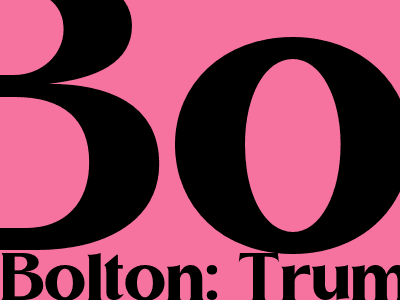
Bolton: Trump Doesn't Just Want Loyalty, He Wants Fealty
Former National Security Advisor John Bolton Is Forthcoming About Trump's Demands For Absolute Devotion
In his forthcoming memoir, former National Security Advisor John Bolton reveals that President Donald Trump demanded absolute loyalty from his staff, going so far as to say that he wanted "fealty." Bolton writes that Trump was "obsessed" with loyalty and that he "would often say that he wanted people who were '100% loyal.'" Bolton also says that Trump was suspicious of anyone who he thought might be disloyal, and that he would often fire people on the spot if he thought they were not being loyal enough.
Trump's Demand For Loyalty Is Not Uncommon Among Politicians
Trump's demand for loyalty is not uncommon among politicians. In fact, it is a common trait among many leaders, both in the United States and around the world. Loyalty is seen as a virtue in many cultures, and it is often seen as a sign of strength and leadership. However, there is a fine line between loyalty and fealty. Fealty is a more extreme form of loyalty that implies a complete and unquestioning devotion to a person or cause. It is the kind of loyalty that is often seen in cults and other totalitarian regimes.
The Dangers Of Trump's Demand For Fealty
There are several dangers associated with Trump's demand for fealty. First, it can lead to a culture of fear and intimidation within the White House. When people are afraid of losing their jobs or being punished for disloyalty, they are less likely to speak out against the president's policies or actions. This can lead to a situation where the president is surrounded by yes-men and women who are unwilling to challenge him, even when he is wrong.
Second, Trump's demand for fealty can make it difficult for him to get honest advice from his staff. If people are afraid of being punished for disagreeing with the president, they are less likely to offer their honest opinions. This can lead to the president making bad decisions based on faulty information.
Third, Trump's demand for fealty can damage the relationship between the president and the American people. When people see the president demanding fealty from his staff, they may start to wonder if he is more interested in his own power than in serving the country. This can lead to a loss of trust in the president and the government.
Conclusion
Trump's demand for fealty is a dangerous and unhealthy trend. It is a sign of a leader who is more interested in his own power than in serving the country. It is a trend that must be stopped before it does further damage to the United States.